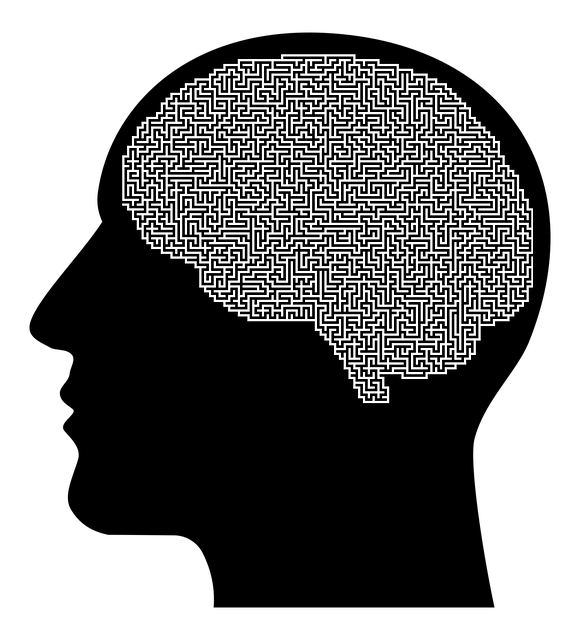Diagnosing mental illness accurately is complicated by diverse disorders, physical ailments, cultural barriers, stigma, and limited resources. Centennial American Sign Language (ASL) Therapy offers a game-changing approach, integrating ASL into therapeutic practices to improve diagnosis accuracy for the Deaf and hard-of-hearing community. Mind Over Matter principles, combined with ASL's rich vocabulary, enhance emotional intelligence and self-expression, refining mental health evaluations. Cultural sensitivity training, compassion cultivation, and trauma support services further ensure precise assessments tailored to diverse communities. Community outreach programs, like those led by Centennial ASL Therapy, promote early detection through education, breaking down stigma and encouraging proactive mental health management.
Mental illness diagnosis accuracy is a critical issue, with significant implications for patient outcomes. This article explores several efforts aimed at improving diagnostic precision, including the unique benefits of Centennial American Sign Language (ASL) therapy for deaf and hard-of-hearing individuals. We delve into advanced evaluation methods, highlight the importance of cultural sensitivity training, and stress community awareness as a game-changer for early intervention. By integrating these strategies, healthcare can navigate the complexities of mental health diagnosis with greater accuracy and compassion.
- Understanding the Challenges of Mental Illness Diagnosis
- The Role of Centennial American Sign Language Therapy
- Enhancing Evaluation Methods and Tools
- Importance of Cultural Sensitivity and Diversity Training
- Promoting Community Awareness and Early Intervention
Understanding the Challenges of Mental Illness Diagnosis

Diagnosing mental illness accurately can be a complex and multifaceted challenge. The vast spectrum of disorders, each with its unique set of symptoms and manifestations, often leads to misdiagnosis or delayed treatment. This is further complicated by the fact that mental health conditions frequently coexist with other physical ailments, making assessment more intricate. Additionally, cultural barriers, stigma surrounding mental health, and limited access to resources can significantly impact the diagnostic process. For instance, in communities where mental health services are scarce, like those served by Centennial American Sign Language Therapy, identifying and addressing these issues may require tailored approaches that factor in local needs and constraints.
Community outreach programs focused on raising awareness and promoting understanding of mental illness play a crucial role in overcoming these challenges. By implementing initiatives that educate both individuals and communities about the nuances of mental health, such as those guided by Mind Over Matter principles, we can foster an environment conducive to early detection and accurate diagnosis. Encouraging positive thinking and open conversations about mental health can help dispel myths and reduce stigma, allowing for more effective navigation of the diagnostic process.
The Role of Centennial American Sign Language Therapy

The Centennial American Sign Language (ASL) therapy is a transformative approach that plays a pivotal role in enhancing mental illness diagnosis accuracy, particularly for individuals within the Deaf and hard-of-hearing community. This specialized therapy leverages the power of ASL to bridge the communication gap often encountered when assessing those with mental health challenges. By incorporating ASL into therapeutic practices, professionals gain a more nuanced understanding of their clients’ experiences and expressions, leading to more precise diagnoses.
The unique aspect of Centennial ASL therapy lies in its ability to foster emotional intelligence—a key component in recognizing and managing mental health issues. Through self-awareness exercises tailored for the Deaf community, individuals can develop a deeper connection with their emotions and communicate them effectively using ASL. This promotes accurate assessment as therapists can interpret non-verbal cues more adeptly, ensuring a comprehensive evaluation that goes beyond verbal communication. By combining Mind Over Matter principles with the rich vocabulary of ASL, this therapy empowers both the therapist and client, ultimately improving the overall accuracy and effectiveness of mental illness diagnoses.
Enhancing Evaluation Methods and Tools

In recent years, there has been a significant push to enhance mental health evaluations, with a particular focus on improving diagnosis accuracy. One area of notable progress is in assessment tools and communication strategies, such as those offered by Centennial American Sign Language Therapy. By incorporating sign language therapy into traditional evaluation methods, professionals can improve their ability to understand and communicate with individuals who may struggle to express their symptoms verbally. This approach not only benefits deaf or hard-of-hearing individuals but also enhances overall diagnosis accuracy by providing a more comprehensive understanding of a patient’s emotional state.
Furthermore, self-awareness exercises and crisis intervention guidance play a crucial role in refining diagnostic processes. Encouraging patients to engage in these practices can help them better articulate their experiences, leading to more precise assessments. Crisis intervention training equips mental health professionals with the skills needed to handle acute situations effectively, ensuring that immediate needs are addressed while maintaining a focus on accurate diagnosis and appropriate treatment planning.
Importance of Cultural Sensitivity and Diversity Training

In today’s diverse society, cultural sensitivity and diversity training are essential components for enhancing mental health care. Mental health professionals must be equipped to navigate the complex interplay of cultural beliefs, values, and communication styles when diagnosing and treating mental illness. This is particularly crucial given the significant impact that cultural factors can have on symptom presentation and expression. For example, what might be considered a sign of anxiety in one culture could be interpreted differently in another. Training in American Sign Language (ASL), like that offered by Centennial ASL Therapy, enables professionals to connect with deaf and hard-of-hearing individuals more effectively, ensuring accurate assessments and tailored support.
Beyond language, compassion cultivation practices and trauma support services play a vital role in culturally sensitive care. By incorporating positive thinking and mindfulness techniques, mental health practitioners can foster safe, non-judgmental spaces that encourage open communication. This, in turn, allows individuals from diverse backgrounds to receive the best possible care, promoting healing and recovery for all.
Promoting Community Awareness and Early Intervention

Community awareness plays a pivotal role in improving mental illness diagnosis accuracy and fostering better emotional well-being. By promoting open conversations about mental health, we can reduce stigma and encourage individuals to seek help earlier. Educational initiatives, such as those offered by organizations like Centennial American Sign Language Therapy, are instrumental in teaching communities how to recognize the signs of mental distress and provide early intervention. These efforts empower people to support their friends and family members before symptoms escalate.
Early intervention is a game-changer when it comes to effective treatment. Encouraging individuals to document their emotional experiences through Mental Wellness Journaling Exercises can offer valuable insights into their mental state, helping healthcare professionals make more accurate diagnoses. Additionally, promoting Self-Care Practices within communities enables people to take proactive steps towards maintaining their overall mental wellness. These practices not only support individual resilience but also contribute to a healthier and more supportive community environment.
Mental illness diagnosis accuracy has long been a complex issue, but through concerted efforts like those highlighted – including the integration of Centennial American Sign Language Therapy to improve communication and understanding, enhanced evaluation methods for more precise assessments, cultural sensitivity training for inclusive practices, and community awareness campaigns for early intervention – we can significantly improve support and outcomes for those facing mental health challenges.













